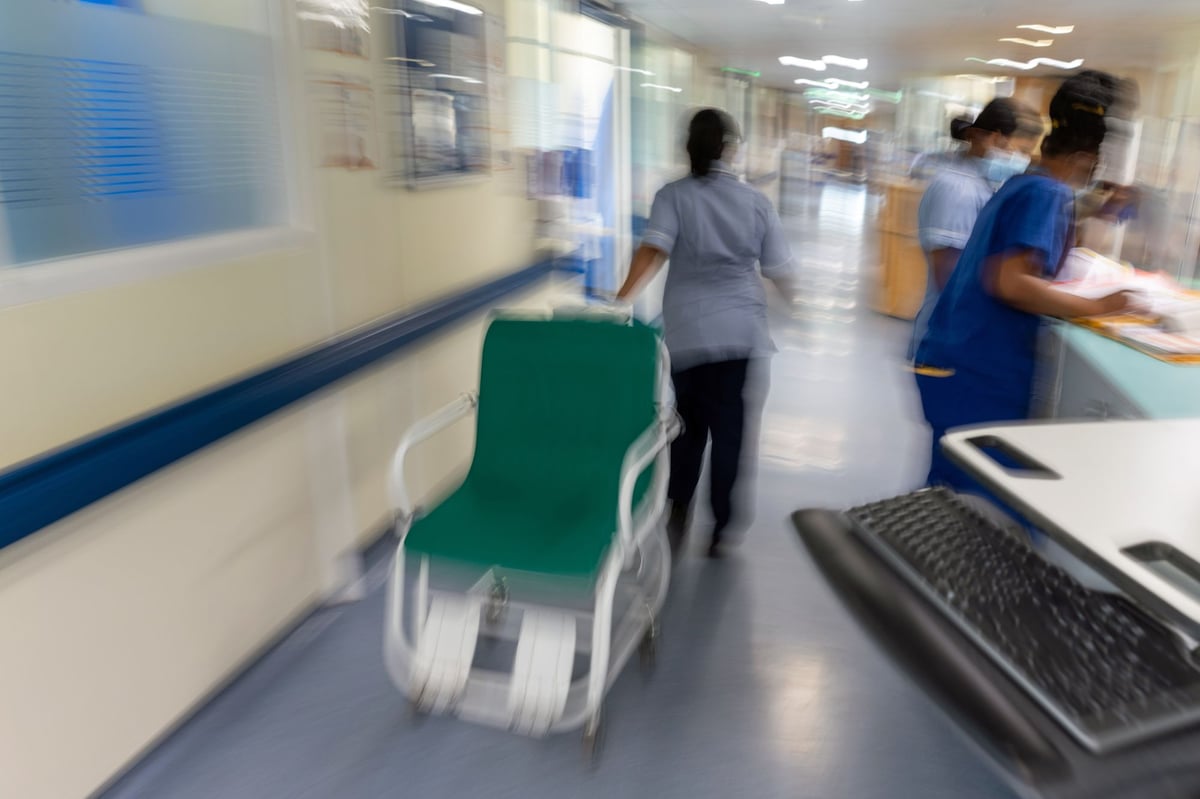Copyright scotsman

About 60 NHS staff were signed off with mental health-related conditions every day last year, figures have revealed, as SNP ministers were told to urgently address workload pressures ahead of an “even more challenging winter period”. Freedom of Information responses show more than 20,000 health service employees took time off work due to mental health in 2024/25. The British Medical Association (BMA) Scotland blamed increasing workloads for the number of absences. More than 22.5 million working hours have been lost in the NHS due to mental health issues since 2020/21, according to the information obtained by the Scottish Conservatives. READ MORE: Poll: More than nine in ten Scots say NHS needs reform The party’s mental wellbeing spokesman Brian Whittle said the figures were proof NHS staff had been pushed “beyond breaking point” on the SNP’s watch. He accused successive health secretaries of “dire workforce planning” and said patients were paying the price for so many staff suffering ill health. READ MORE: 'Workforce crisis' as hundreds of thousands of NHS shifts understaffed in Scotland “These shocking figures are a damning indictment of the SNP’s total lack of support for our NHS staff,” he said. “On the SNP’s watch, many staff have been pushed well beyond breaking point and are unable to work. My thoughts are with anyone who has had to take time off work due to mental health issues. “Workers have been crying out for support, but successive SNP health secretaries have been missing in action. Their dire workforce planning has left our health service dangerously overstretched and patients also end up paying a heavy price for the SNP’s incompetence, despite the best efforts of staff. “The situation facing staff and patients in Scotland is a national scandal, yet John Swinney and [Health Secretary] Neil Gray have no credible plan to fix it. They need solutions, not soundbites. “With winter fast approaching, the huge pressure and demands on staff will likely intensify. Neil Gray must finally outline a plan that gets more resources to support frontline staff, rather than money being squandered on backroom bureaucracy in the health service.” The figures obtained by the Tories show 21,845 NHS staff took time off because of anxiety, stress, depression or other mental health conditions in 2024/25 - around 60 a day on average. This compared to 13,817 in 2020/21, although three health boards did not provide figures dating back that far. As of March this year, NHS Scotland employed 188,313 people. Dr Iain Kennedy, chair of BMA Scotland, said: “While doctors’ mental health can be affected by many factors, there is no doubt increasingly workloads and having to work in challenging conditions in the NHS, which has been the experience of recent years, has also increased the risk of mental health conditions and burnout. “The Covid pandemic did have a considerable impact on the mental health and emotional wellbeing of the medical profession, with reports of overwork, distress, trauma and isolation. “Many doctors suffered from mental health conditions such as anxiety or depression, which were caused or made worse by the pandemic. Of course, many doctors are still dealing with the impact of working through and indeed suffering from Covid, the legacy of which will no doubt continue to have an impact for some time. “In these circumstances, and with the even more challenging winter period approaching, it is vital that doctors are able to access the support they need, such as the Workforce Specialist Service, which is available to all regulated health and social care staff in Scotland, and that funding is maintained for this vital service, along with other measures to support their health and wellbeing. “However, these are essentially treating the symptoms rather than the root cause of burnout. So it is also essential that urgent action is taken by government to address workload pressures, which are having a detrimental effect on the health of the workforce, and this must include a proper long-term workforce plan to address vacancies and ensure a sustainable NHS in years to come.” The Royal College of Emergency Medicine warned earlier this week that a “crisis” in Scotland’s accident and emergency (A&E) departments was leaving staff “facing violence and aggression” from patients. Accident and emergency waiting times have again worsened. In the week ending October 26, a total of 2,007 people – 7.5 per cent of patients – spent 12 hours or more in an A&E department – the highest seven-day total since the week to February 2. A Scottish Government spokesperson said: “We value the tremendous job our NHS staff do and take their welfare and mental health very seriously. “We invest more than £2.5 million in wellbeing resources every year, including a 24/7 compassionate listening service, confidential mental health treatment and access to psychological therapies. “Our National Wellbeing Hub also offers a range of self-care wellbeing resources and signposts support services.”



